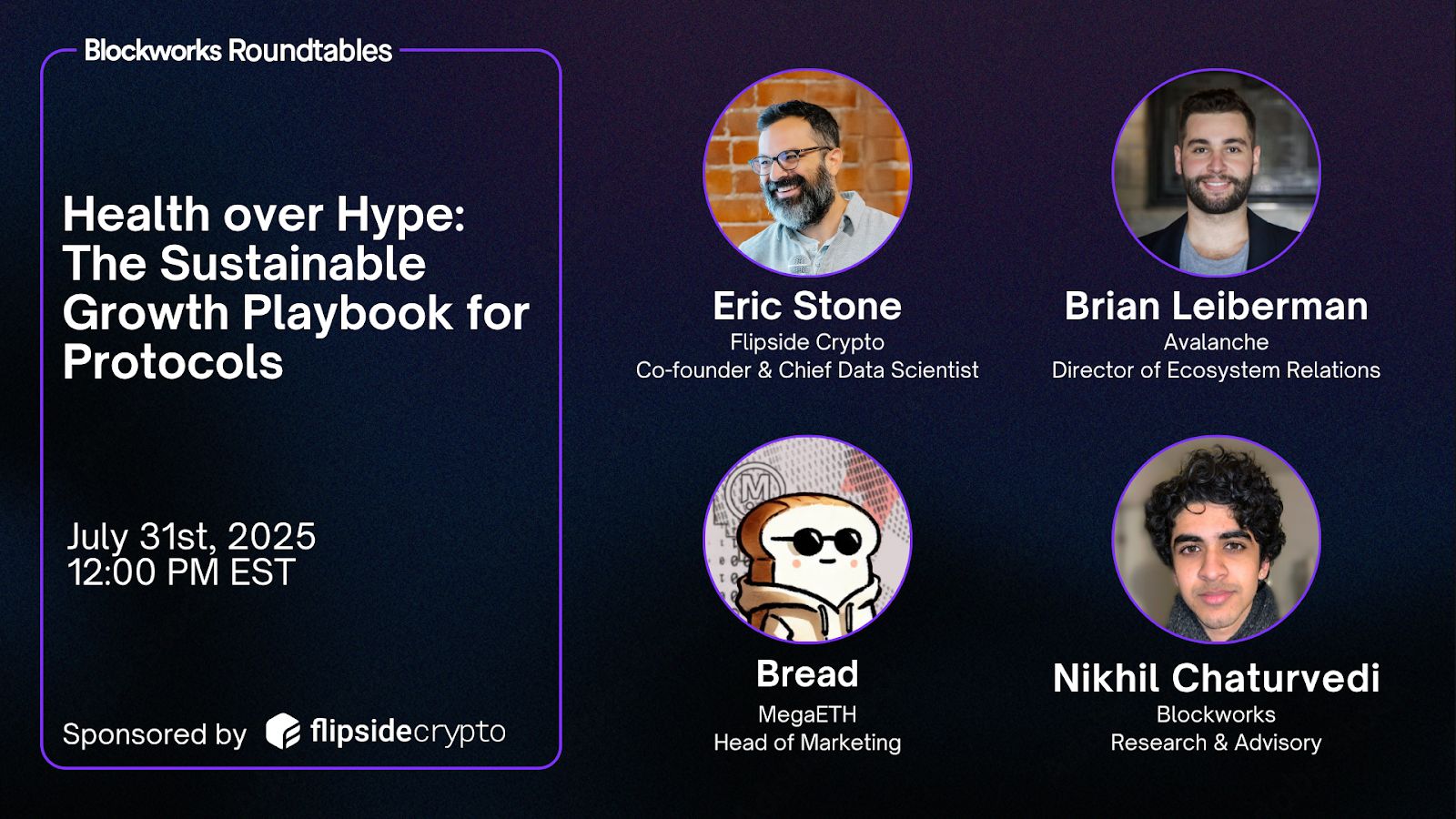- 0xResearch
- Posts
- 🤔 Do you own the end user?
🤔 Do you own the end user?
Axiom wins regardless

Google wins because it owns the end user via Chrome. Axiom wins because it owns the degen trader.
— Donovan

Telegram NFTs:

Source: Dune
In January this year, Telegram introduced “collectible gifts” — a kind of emoji that you can “wear” next to your name on your profile. These tokenized NFTs have found a life of their own and are being traded on a mix of onchain and off-chain marketplaces.
The above chart shows daily trading volumes of about $1-2 million in the last several months. About 306k unique wallets are trading these things as of July, putting TON in the top five largest blockchains by NFT trading volumes.
Crypto has no shortage of short-term hype cycles. The best protocols buck the trends and build sustainable ecosystems for the long haul.
Join Blockworks Research, MegaETH, Flipside Crypto and Avalanche for this upcoming Roundtable. Tune in live to ask the speakers a question!
📅 July 31 | 12 pm ET
Owning the end user
I’m a Firefox user. I say that with pride and shame.
Pride because I’ve stayed loyal to a browser that once upon a time was the “cool” alternative to Internet Explorer.
Shame because I know the world has moved on to Chrome.
The irony is that despite my “loyalty” to Firefox, it only exists thanks to Chrome.
85% of the Mozilla Foundation’s revenue ($570 million) comes from a revenue-sharing agreement with Google, where Mozilla takes a share of ad revenue generated by Google searches from Firefox users.
Google also pays out billions to OEMs like Samsung, Motorola and AT&T to ensure Chrome (and Google Search) is preinstalled on their hardware devices.
It’s the price Google pays for maintaining its browser’s dominant ~70% market share.
It was also always the plan. During Chrome’s 2008 launch, Sundar Pichai stated upfront that Google’s core business depends on dominating the browser market.
If Google doesn’t control the browser market, less people are Googling, which means less ad revenue.
In other words, it all comes down to owning the end user.
Chrome’s decades-long dominance may be facing its first-ever serious competitive threat.
A slew of AI-first browsers, notably Perplexity’s recently-announced Comet, are looking to reinvent the browser experience.
Based on all the information our browsers know about us — our history, bookmarks, credentials, web behavior — AI-first browsers like Comet can become an “active participant” and “embedded” part of our workflows, Delphi’s Can Gurel pointed out in “Browser Wars Got Personal.”
If a browser-integrated AI agent can find and make restaurant reservations for me, I no longer need Google.
Again, it comes down to owning the end user.
Crypto isn’t an exception to this rule. A similar phenomenon is playing out in Solana’s memecoin land.
Of late, Pump has been losing market share to LetsBonk — putting out $229m in trading volumes compared to LetsBonk’s $1.1b in the last week.

Pump’s revenues have seen a steep decline.

Yet while order-flow volumes are bouncing between Pump and LetsBONK, it doesn’t affect the revenues of the dominant trading bot Axiom.

That’s because while memecoins are launched on Pump or LetsBonk, degen traders are in Axiom’s frontend UI.
Launchpad bonding curves are permissionless, so Axiom simply looks at every new token, detects which launchpad contract it came from and builds a buy/sell button around it.
And traders stick around on Axiom for its comprehensive suite of pro tools like advanced charts, wallet trackers and the integration of other popular trading products (Hyperliquid perps), rebates, etc.
In other words, like Google, Axiom owns the user. It monetizes whatever launchpad is hot by pointing to any launchpad contract.
Whether it’s web search or onchain degen trading, the game is the same: The interface that commands daily habit and captures the last click captures the money.
— Donovan Choy

|
|
